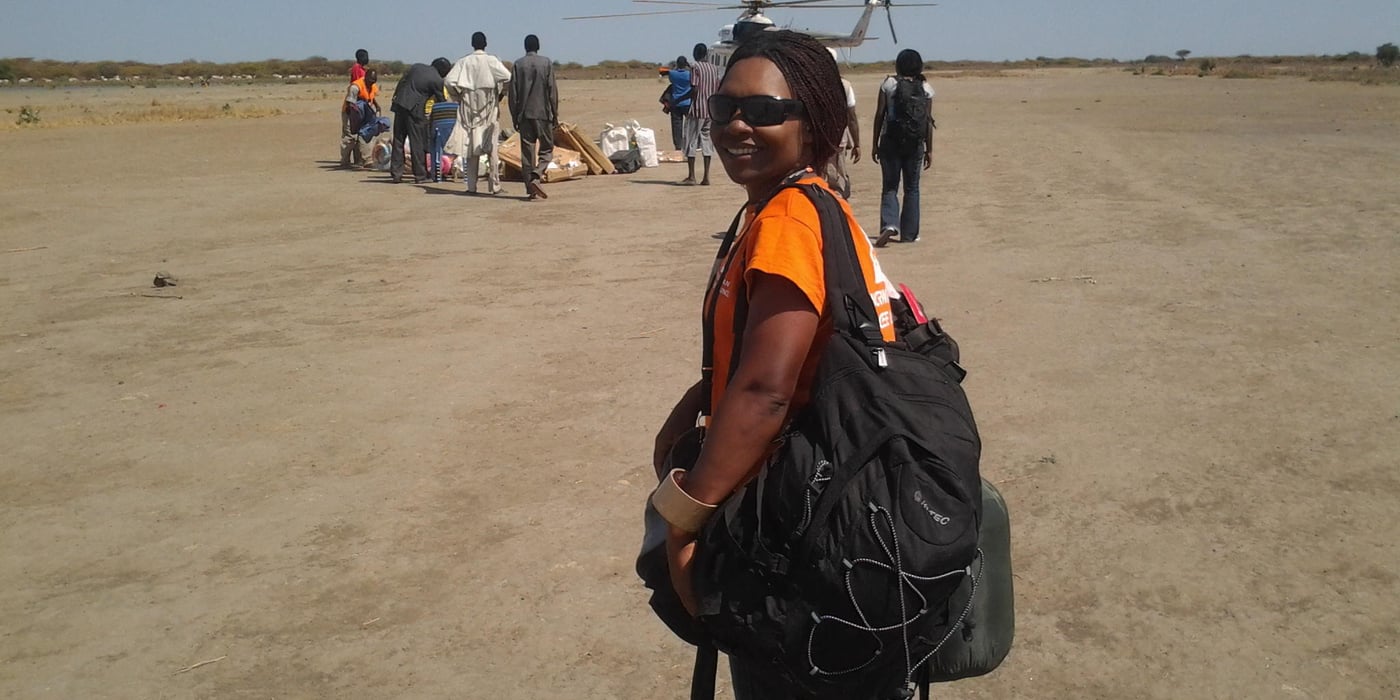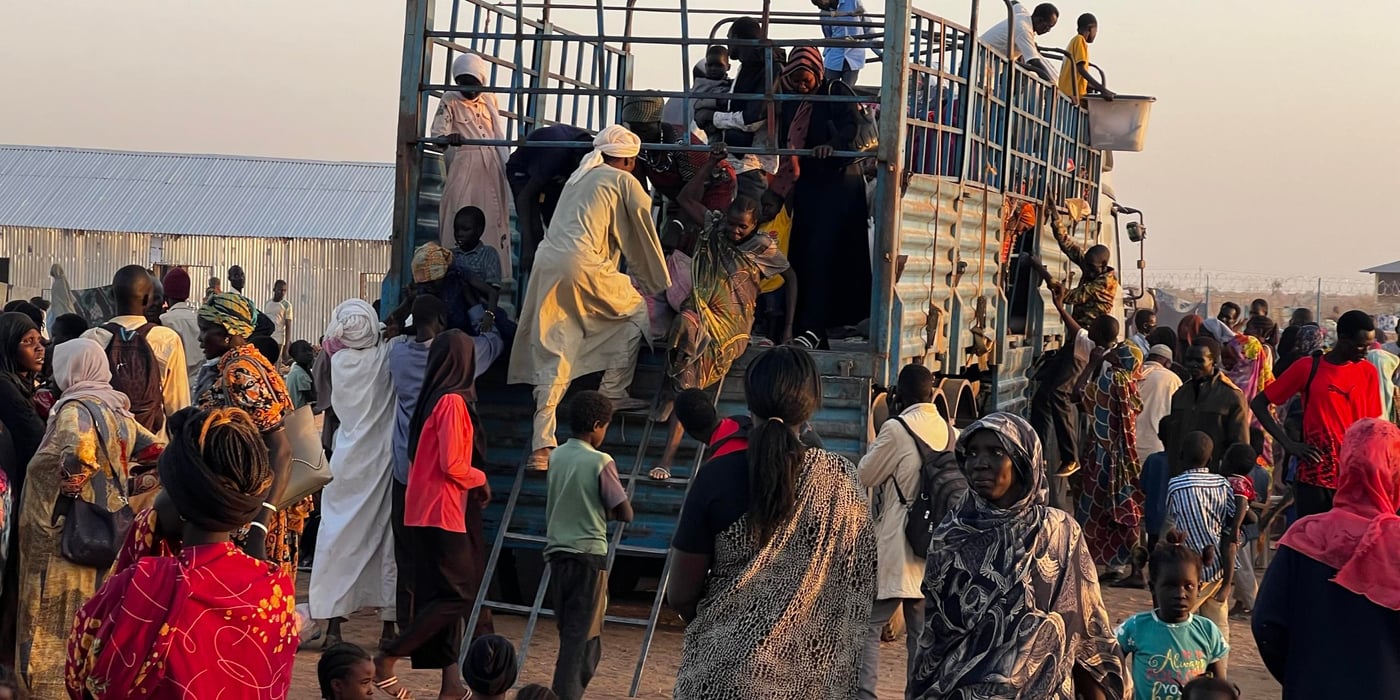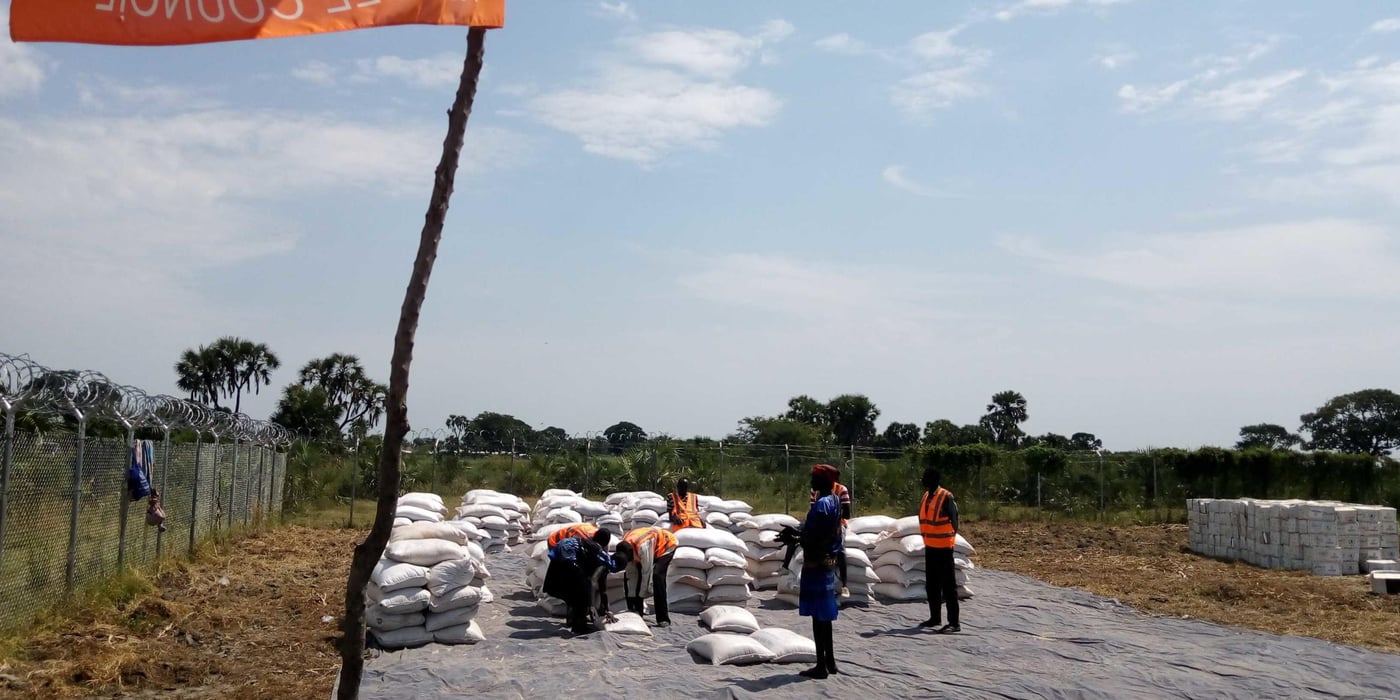
“They survive thanks to this. They dance with joy and thankfulness. The food is their lifeline”, says Regina.
Hard to reach
In South Sudan’s capital Juba, Regina is just about to pack her bags for a new mission. She takes water, food, tents and medicine. Everything needs to be ready when the helicopter takes off. Her team does not know exactly what is expecting them upon reaching the location. But it will be somewhere humanitarian workers cannot normally go.
That is why the Rapid Response Team from the Norwegian Refugee Council (NRC) has been called upon. NRC has currently three such teams operating in South Sudan. They are specially trained humanitarians, going in to hard to reach areas. “Sometimes we are dropped on an island”, says Regina. These are small islands on the Nile that people have fled to, where there are no escape routes should an emergency situation occur.
Great support
As soon as the community knows that Regina and her team are coming, they clean the compound and start setting up tukuls, small traditional huts. “They always try to do their best out of the small things they have”, she explains.
Her job as a logistics coordinator for the Rapid Response Team is to make sure everything goes according to plan when food is to be dropped from the World Food Program (WFP) airplanes. “I need to make sure that the drop zone is clear before planes can drop the goods. Then we supervise the community on how to store the food. We divide people into groups before we start the distribution. We can do 25 000 people in three days.”
Dance of joy
The bags that are being dropped from the airplanes contain of sorghum, beans, salt, sugar, oil and a nutritional supplements for children. The sight of the white bags falling from the sky often makes people dance and sing. ”What makes me go on with this job, is the happiness the community show us when we arrive with food. They dance and sing when the food is dropped from the planes. Seeing that we make a difference keeps me going,” says Regina.
However, the happiness is often cut off by fighting, leaving people with no other choice but to flee. Regina has distributed food to villages that soon after were attacked and burned down by militia. Some of the people managed to escape, but what happened to the rest she sadly does not know. “Sometimes you feel you are not doing enough. And sometimes I wonder if the food distribution attracts the militia, but these are all unanswered questions. But I often ask myself; did I do the right thing?”
To make a difference
Due to the conflict and the massive displacements the harvest this year will not meet the needs. A significant number of people are experiencing a catastrophic lack of food. As long as the food insecurity remains high, Regina and her team must continue to be dropped in hard to reach areas. “It is all a fight against time”, says Regina. “The reason why we cannot find more durable solutions with these people is that they live in a conflict zone and they move all the time.”
The boy on the beach
After her mission, Regina will have some days off home in Zimbabwe where her husband and two children live. “I have two kids at home. They miss me, and I miss them, but by having this job I am making sure they will have a better future. I will teach them to appreciate small things in life.” Regina hopes the International community will turn their eyes towards South Sudan before the situation gets even worse. “It is strange to see how things can change from one day to the other. In Europe it was that boy on the beach. Maybe we need a picture of a boy like that in South Sudan?”



